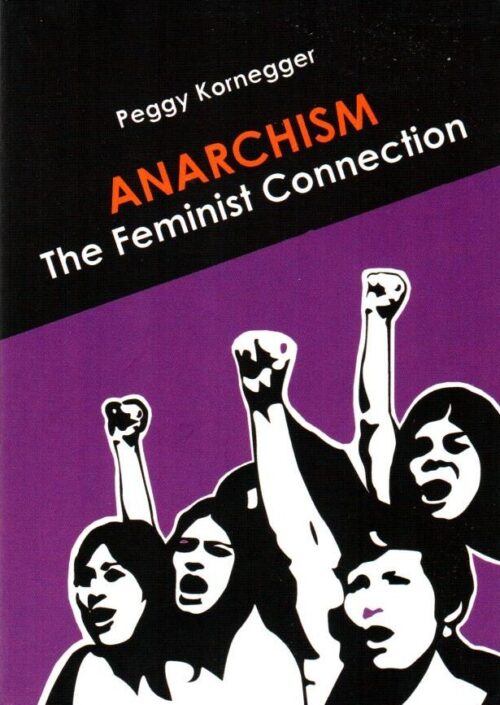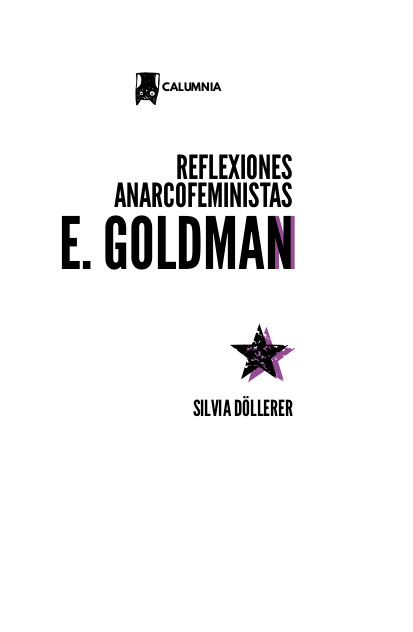<p>Eleven years ago, when I was in a small-town Illinois high school, I had never heard of the word “anarchism” — at all. The closest I came to it was knowing that anarchy meant “chaos”. As for socialism and communism, my history classes somehow conveyed the message that there was no difference between them and fascism, a word that brought to mind Hitler, concentration camps, and all kinds of horrible things which never happened in a free country like ours. I was subtly being taught to swallow the bland pablum of traditional American politics: moderation, compromise, fence-straddling, Chuck Percy as wonder boy. I learned the lesson well: it took me years to recognize the bias and distortion which had shaped my entire “education”. The “his-story” of mankind (white) had meant just that; as a woman I was relegated to a vicarious existence. As an anarchist I had no existence at all. A whole chunk of the past (and thus possibilities for the future) had been kept from me. Only recently did I discover that many of my disconnected political impulses and inclinations shared a common framework — that is, the anarchist or libertarian tradition of thought. I was like suddenly seeing red after years of colourblind grass.</p>
 <p>Eleven years ago, when I was in a small-town Illinois high school, I had never heard of the word “anarchism” — at all. The closest I came to it was knowing that anarchy meant “chaos”. As for socialism and communism, my history classes somehow conveyed the message that there was no difference between them and fascism, a word that brought to mind Hitler, concentration camps, and all kinds of horrible things which never happened in a free country like ours. I was subtly being taught to swallow the bland pablum of traditional American politics: moderation, compromise, fence-straddling, Chuck Percy as wonder boy. I learned the lesson well: it took me years to recognize the bias and distortion which had shaped my entire “education”. The “his-story” of mankind (white) had meant just that; as a woman I was relegated to a vicarious existence. As an anarchist I had no existence at all. A whole chunk of the past (and thus possibilities for the future) had been kept from me. Only recently did I discover that many of my disconnected political impulses and inclinations shared a common framework — that is, the anarchist or libertarian tradition of thought. I was like suddenly seeing red after years of colourblind grass.</p>
<p>Eleven years ago, when I was in a small-town Illinois high school, I had never heard of the word “anarchism” — at all. The closest I came to it was knowing that anarchy meant “chaos”. As for socialism and communism, my history classes somehow conveyed the message that there was no difference between them and fascism, a word that brought to mind Hitler, concentration camps, and all kinds of horrible things which never happened in a free country like ours. I was subtly being taught to swallow the bland pablum of traditional American politics: moderation, compromise, fence-straddling, Chuck Percy as wonder boy. I learned the lesson well: it took me years to recognize the bias and distortion which had shaped my entire “education”. The “his-story” of mankind (white) had meant just that; as a woman I was relegated to a vicarious existence. As an anarchist I had no existence at all. A whole chunk of the past (and thus possibilities for the future) had been kept from me. Only recently did I discover that many of my disconnected political impulses and inclinations shared a common framework — that is, the anarchist or libertarian tradition of thought. I was like suddenly seeing red after years of colourblind grass.</p> <p>A pesar de renegar de los personalismos, cuando se habla de anarquismo se suele tomar como referencia a autores como Proudhon, Bakunin o Kropotkin, lo que demuestra un horizonte reducido en cuanto a perspectivas como la de género. El texto aquí recogido pretende recuperar a una figura pionera en estos asuntos: Emma Goldman.</p> <p>Este trabajo resulta de la investigación personal en la búsqueda de mujeres referentes en la historia del anarquismo. La actualidad de muchos aspectos tanto de la vida política como de la personal de Goldman revelan la necesidad de su recuerdo y la continuidad de sus reivindicaciones. No obstante, Goldman no deja de ser una entre muchas de las mujeres que la historia ha relegado a un segundo plano: la memoria y la escucha de todas ellas supone un acto de justicia social que les debemos por su lucha.</p>
<p>A pesar de renegar de los personalismos, cuando se habla de anarquismo se suele tomar como referencia a autores como Proudhon, Bakunin o Kropotkin, lo que demuestra un horizonte reducido en cuanto a perspectivas como la de género. El texto aquí recogido pretende recuperar a una figura pionera en estos asuntos: Emma Goldman.</p> <p>Este trabajo resulta de la investigación personal en la búsqueda de mujeres referentes en la historia del anarquismo. La actualidad de muchos aspectos tanto de la vida política como de la personal de Goldman revelan la necesidad de su recuerdo y la continuidad de sus reivindicaciones. No obstante, Goldman no deja de ser una entre muchas de las mujeres que la historia ha relegado a un segundo plano: la memoria y la escucha de todas ellas supone un acto de justicia social que les debemos por su lucha.</p>




